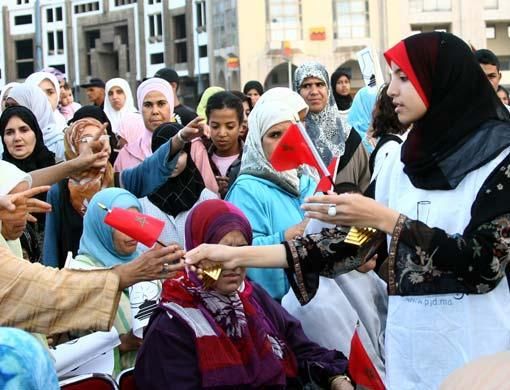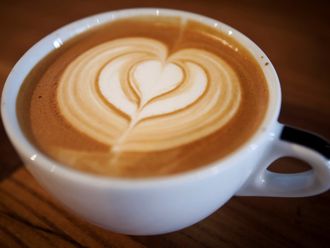Casablanca: The Islamic party dominating Morocco's electoral season has many faces - among them bareheaded young women in jeans, marketing students preaching the gospel of global markets and legions of poor and disenfranchised.
The Justice and Development Party's cross-class, anti-establishment appeal could spell victory in parliamentary elections today.
And that would pose a challenge to the secular government in this resort-lined Muslim kingdom and to its Western allies.
"Our victory ... is nothing to worry about," Sa'ad Eddine Othmani, head of Morocco's Justice and Development Party, or PJD, said.
Speaking to The Associated Press on the campaign trail, he added: "Moderate Islam is the best rampart against extremism."
PJD cites Islam as its driving inspiration in a country that is overwhelmingly Muslim, though where many women shun head coverings and bars are widespread. Its leadership and message are moderate, though some members may hold radical views.
PJD's platform - streamline bureaucracy, root corruption out of the courts and gear university education more directly toward the job market - resonates among the country's poor and jobless, who feel abandoned by a government widely seen as self-serving.
Ties with US
The party accepts the monarch, and wants Morocco to maintain its good relations with Washington. US officials say they deal with PJD as they do with Morocco's other political parties.
The king is struggling to keep up his democratic credentials while suppressing terrorism that threatens to undermine his regime. The country's largest Islamic political movement, Justice and Charity or Adl wal Ihsan, is banned from politics. But so far, the government has chosen to carefully embrace PJD.
Othmani said his PJD has softened its image in recent years, especially after 2003 suicide bombings in Casablanca blamed on hardliners, to broaden its support base. It has played down calls to cut off thieves' hands and force women into head scarves.
Still, some fear an Islamic-minded government could threaten Morocco's moderate reputation in the region, which helps fuel an economy reliant on tourism.
"I have the impression they are hiding their real ideas. This is what worries us," said Ameenah Elhaja.
Mustapha Ramid, a high-profile party member, is the face of PJD that secularists fear. A defence attorney for terrorist suspects, he is loudly critical of Israel and the Moroccan government. In the long run, Ramid wants all-encompassing Sharia in Morocco.
While PJD leader Othmani visits voters' living rooms to spread PJD's message, secular parties, including the two biggest, the conservative Istiqlal and the centre-left Socialist Union of Popular Forces or USFP, have barely bothered campaigning.
PJD won 42 seats in the 325-seat parliament in the last elections in 2003, forming the largest opposition group to the governing coalition. This time, the party is expected to beat the top two parties in that coalition, Istiqlal and USFP.













